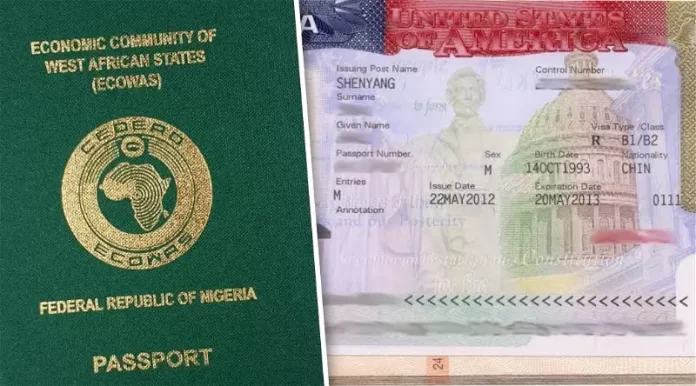New statistics for 2023 reveal that the European Union (EU) received €3,435,200 from rejected visa applications from Nigeria alone. EUobserver reports that globally, EU governments amassed a total of €130 million from visa rejections, with African and Asian nations shouldering 90% of these costs.
The report highlights the severe impact on African countries, noting that rejection rates for visa applications are as high as 40-50% in countries like Ghana, Senegal, and Nigeria.
Additionally, the visa fee for Nigerians and other African nationals applying for a Schengen Visa to travel to the EU has increased by £10, rising from £80 to £90.
According to the latest data released over the weekend, starting June 11, 2024, Nigerian and other African nationals will need to pay a £90 visa application fee.
In 2023, African nationals experienced 704,000 visa rejections, amounting to a total expenditure of €56.3 million on visa requests.
Specifically, out of 1,825 applications from Nigeria, 636 were rejected, representing a rejection rate of 34.80%, as per the report.
EU countries collected €3.4 million from rejected Schengen visa applications submitted by Nigerian citizens, demonstrating the financial burden of these rejections.
This €56.3 million expenditure reflects the non-refundable nature of visa application fees, with African nationals accounting for 43% of the total visa application expenses in 2023. Rejection rates were notably high for African and Asian countries, which bear 90% of all costs.
Expenditures are expected to increase by 12.5% starting next week, as the EU raises visa fees for adults from €80 to €90 on June 11, following a recent EU Commission decision.
Morocco recorded the highest number of Schengen Visa applications in the year under review.



